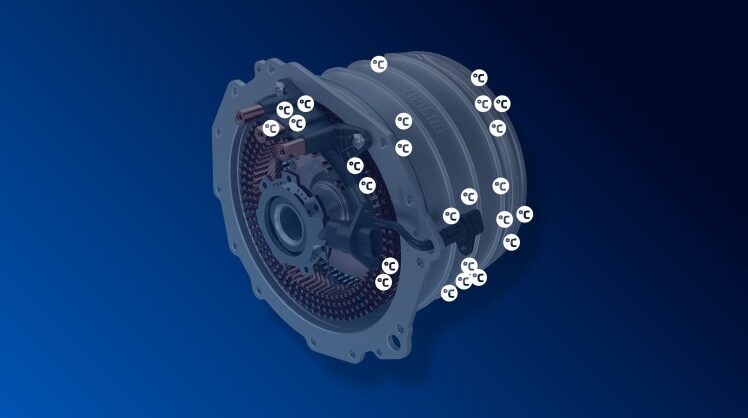ZF has developed a technology to measure the temperature deep inside an electric motor, with the data it produces used to optimize electric motors and extract more power. The technology works without additional hardware and uses artificial intelligence (AI).
The AI-based TempAI solution uses a self-learning temperature model that is said to improve forecast accuracy by over 15%, enabling significantly more precise thermal use of the electric machine.
TempAI is based on a platform that automatically generates physically based models from measurement data and makes them operational in a very short time. Existing control units are sufficient as the AI model used requires low computing resources, leading to cost-efficient implementation.
“This technology enables us to further increase the efficiency and reliability of our drives. At the same time, TempAI demonstrates how data-driven development can be not only faster, but also more sustainable and more powerful,” said Dr Stefan Sicklinger, head of AI, digital engineering and validation in R&D, ZF.
The AI-based technology is ready for series production and available for the new generation of ZF electric motors. “We are proud to bring this innovation into series production and thus making a significant contribution to more efficient e-mobility,” said Dr. Otmar Scharrer, head of development for electrified powertrain technology. ”TempAI is a real technological breakthrough for the temperature management of electric drives.”
More power
More precise temperature prediction enables more targeted control right up to the thermal operating limit. ZF says that results show up to 6% more peak power and a verifiable increase in efficiency in the Worldwide Harmonized Light Vehicles Test Procedure (WLTP) cycle, the global standard for realistic driving emissions. During dynamic driving, for example, on the Nürburgring Nordschleife, energy consumption was reduced by 6% to 18%, depending on the load point.
Fewer rare earth materials
The optimized thermal design reduces the quantities of heavy rare earths required and reduces the development time per project, from several months to a few days. During the development of electric drives, AI has helped developers understand and record processes inside the electric motor, for which there is no physically reliable model due to cost or time reasons.
The biggest challenge is managing the temperature inside a rotor, which can only be measured directly during operation, an approach that is both complex and costly. However, there is a large amount of data that has been systematically recorded during test bench and prototype vehicle testing. This includes environmental temperature readings, such as from the oil pan, and the rotor speeds.
The various possible operating points and their time-dependent variations result in millions of data points. These reflect real-world driving behavior, such as sudden acceleration or low-speed coasting. AI algorithms are trained to identify factors that most significantly influence temperature changes in the rotor and stator.
In related news, ZF has unveiled a next-generation electric range extender system that it says will go into production at the start of 2026. The electric Range Extender (eRE) and the electric Range Extender plus (eRE+) have been designed to meet dynamic market and customer requirements as well as flexible drive concepts. Read the full story here


